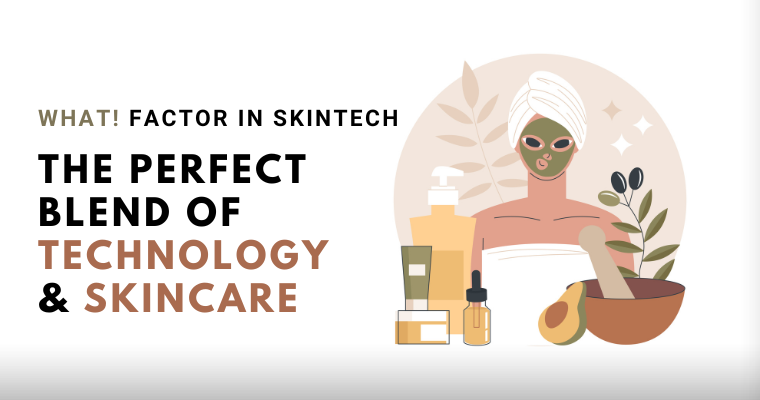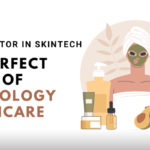Technology is advancing at a rapid pace, and its influence spans across every sector, shaping the way we live, work, and interact. Think about it. From the moment we wake up to the sound of our alarm clocks (or perhaps the gentle vibration of our smartphones), technology has already taken some space into our daily lives. The cosmetics and beauty sector is not immune to the disruptive effects of technological advancements either. So Skin Tech is the need of the hour.
It’s a common belief that generations before us survived just fine without any of the skin technologies, so why should we invest in them?
The answer is very simple.
Pollution, UV exposure, bad diets, increasing stress, and antibiotics—all of these stressors work against our sensitive skin barrier, which past generations did not have to deal with. It speeds up the aging process, giving our face unwanted fine lines, wrinkles, sagging, dullness, hyperpigmentation, and the loss of collagen.
Skincare Technologies That Can Help!
#1. Smart Mirrors
These mirrors are equipped with advanced sensors and cameras to analyze your skin’s condition in real-time. They can detect imperfections, measure hydration levels, and even identify specific skin concerns such as wrinkles or dark spots. Some smart mirrors also offer personalized skincare recommendations based on the analysis.
#2. LED Light Therapy Devices
Light therapy has gained popularity in skincare routines, and devices using LED lights are a notable advancement in this field. These devices emit different colors of light to target specific skin issues.
For example, red light promotes collagen production and reduces wrinkles, while blue light helps combat acne-causing bacteria. The ability to harness the power of light for skin care purposes is indeed a surprising and effective innovation.
#3. 3D Printing of Skincare Products
3D printing technology has made its way into the skincare industry, allowing for the creation of customized skincare products tailored to an individual’s specific needs. Companies can use 3D printers to formulate and produce personalized face masks, serums, or creams with precise ingredient combinations and concentrations.
#4. Micro-needle Patches
These patches are embedded with microscopic needles that penetrate the top layer of the skin, delivering active ingredients directly to the targeted areas. The concept of micro-needling has been around for some time, but the development of patches that can be applied at home without any professional assistance adds a surprising and convenient element to this skincare technique.
#5. Virtual Reality (VR) Skincare Experiences

VR technology in skincare offers immersive and interactive experiences. Users can virtually explore skincare clinics, take part in guided skincare routines, or receive expert advice from dermatologists and estheticians through virtual consultations. VR adds an exciting and futuristic element to skincare education and self-care practices.
Author Profile







